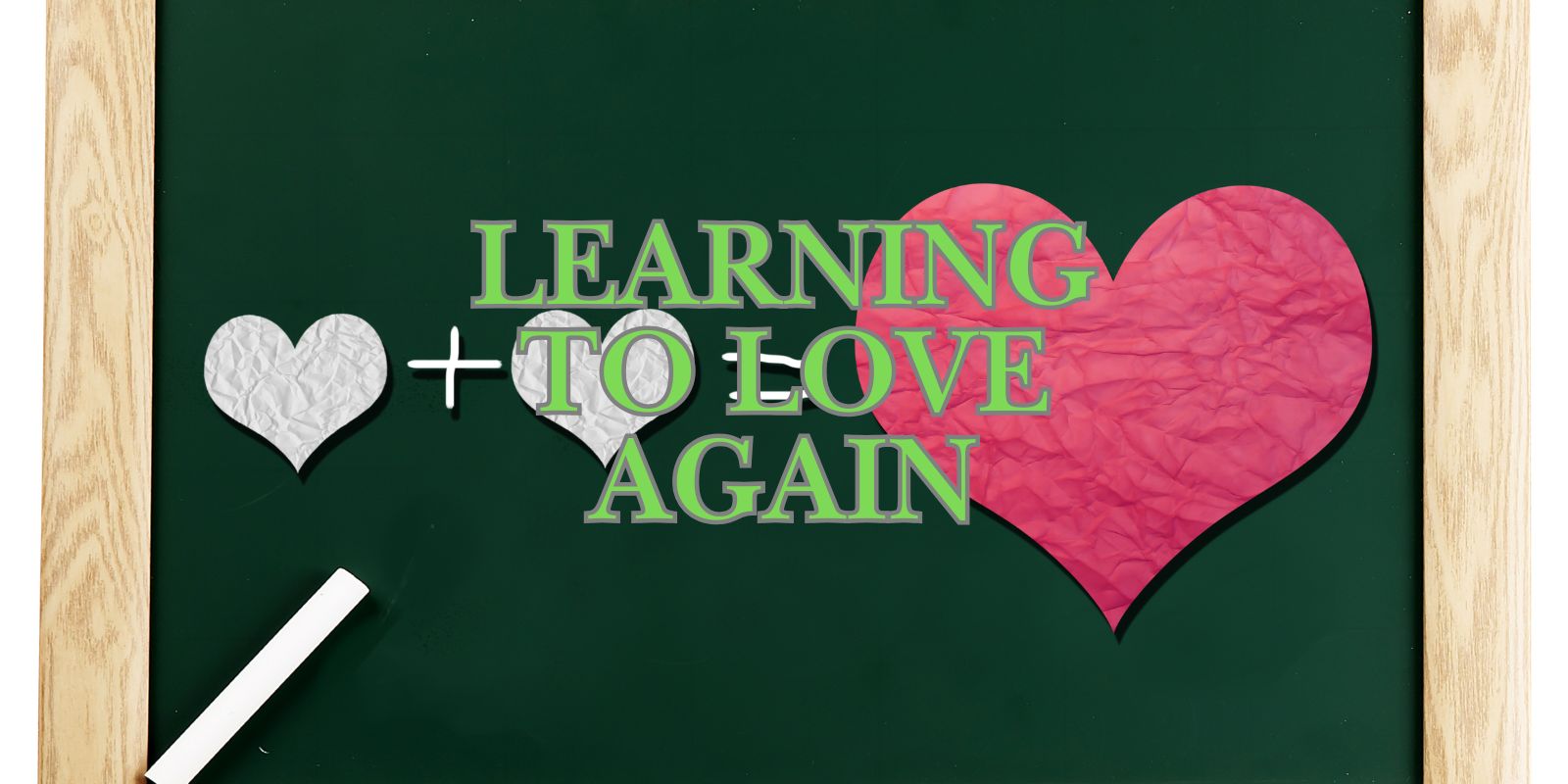Learning to Love Again After Loss – Best Real Advice
Learning to Love Again. This guide helps you move from grief to readiness for new love by rebuilding self-identity, cultivating emotional safety, addressing fear and trust, and taking gentle steps into dating—while honouring the past. (Read on for practical steps, support organisations, and FAQs.)
Learning to love again—whether after the death of a spouse or the ending of a relationship—can feel impossible. The world you knew has changed and the future may look uncertain. This article offers a compassionate roadmap: understand grief, rebuild your sense of self, address fears and trust, recognise signs of readiness, and discover how to begin dating again. Embedded links direct you to useful resources and Australian support organisations if you need immediate help.
Table of Contents – Learning to Love Again
- Overview: Pain, Hope, and Possibility
- The Emotional Journey: Grief, Heartbreak, and Healing
- Rebuilding Your Sense of Self Before Finding Love Again
- The Fear of Loving Again: Doubts and Anxiety
- The Process of Opening Your Heart to Love Again
- Love the Second (or Third) Time Around
- 11 Organisations in Australia That Help Deal With Loss
- FAQ
- Your Gentle Next Chapter

Overview: Pain, Hope, and Possibility
Losing a partner reshapes daily life and challenges what you believed about the future. The shock can be crushing, yet within that opening there can also be the slow return of curiosity and the soft stirrings of hope. This guide affirms both your pain and your ability to feel again—without rushing you or suggesting any timeline.
If you’re wondering what love means after loss, know that it often looks different: quieter in some ways, wiser in others. You don’t have to replace the past; you can build new meaning around it.
The Emotional Journey: Navigating Grief, Heartbreak, and Healing
Understanding Grief and Heartbreak
Grief and heartbreak share common elements—loss, longing, and disbelief—but their textures differ depending on how love ended. The death of a spouse carries permanent absence and rituals that can both help and complicate healing. Being left or betrayed often brings anger, humiliation, and a search for answers. Both experiences can trigger surprising waves of emotion long after the event.
Expect the unevenness. You might have days that feel manageable and sudden moments where the past floods back. That fluctuation is normal; healing is not linear. Learning to Love Again – Practicing self-compassion during these swings—allowing yourself to cry, to rest, and to seek help—creates the conditions for recovery.
Giving Yourself Permission to Heal
Guilt about feeling okay again is common. Friends or family may unintentionally impose timelines. Your healing is your own. Give yourself permission to smile, to accept kindness, and to entertain the possibility of companionship when it feels right—not because someone else says so.
Practical steps include setting small daily goals, seeking counseling when needed, and creating gentle rituals that honour the past while opening space for new experiences. Rituals—lighting a candle, visiting a meaningful place, or keeping a memory box—help hold both remembrance and forward movement together.
Rebuilding Your Sense of Self Before Finding Love Again
Who Are You Now?
When partnership defined much of your life, its end can leave you asking who you are without that role. Rebuilding is about rediscovery. Explore activities you once loved or new hobbies that spark curiosity. Reconnecting with friends, volunteering, or taking a class can help you find rhythms that feel uniquely yours.
Learning to Love Again – Journal prompts can help: “What makes me feel alive?” “What did I put aside for someone else?” Small experiments—trying a hobby for a month, joining a walking group—offer low-pressure ways to reconnect with preferences and values.
Cultivating Self-Love and Emotional Readiness
Self-love is the foundation for healthy future relationships. It’s less about perfection and more about steadiness: regulating emotions, setting boundaries, and trusting your judgment. Therapy, peer support groups, and self-help resources can support this process. If you feel stuck, professional grief counseling is a safe, effective pathway.
Emotional readiness shows up when memories no longer hijack every new possibility. You’ll find curiosity in place of constant comparison and a willingness to meet new people without searching for replicas of the past.
The Fear of Loving Again: Addressing Doubts and Anxiety
Fear of Losing Again (For Those Who Lost a Spouse)
After loss, the idea of loving again feels like inviting potential pain into your life. The fear is rooted in memory—a powerful teacher that shapes future risk assessment. Facing the fear means acknowledging it and choosing actions that expand—not ignore—your sense of safety.
Learning to Love Again – Practical approaches: practice gradual vulnerability, build friendships first, and use rituals of remembrance so your past love remains honoured rather than erased. Many people find solace in communities of others who’ve loved after loss; shared stories normalize the process and ease the fear.
Fear of Trusting Again (For Those Who Were Left)
If you were abandoned or betrayed, trust may feel fragile. Rebuilding trust starts with small, consistent actions: honesty, predictable boundaries, and clear communication. Therapy—especially approaches like cognitive behavioural therapy (CBT) or trust-focused couples work—can teach skills to recalibrate expectations.
Remember: caution is healthy; isolation is not. It’s possible to be discerning without shutting the door entirely. Slow dating—meeting for coffee, sharing low-risk activities, and observing consistency—helps you test trust in real-world settings.
The Process of Opening Your Heart to Love Again
Signs You May Be Ready for Love
Readiness isn’t a certifiable state, but there are signals: enjoying your own company, feeling curiosity about others, being able to speak of the past without constant pain, and not needing a new partner to “fix” you. Notice small changes—smiles that stick, lightness in your chest, or genuine interest in someone new.
Also look for practical readiness: you can set boundaries, say no when needed, and prioritize self-care. These skills protect you and make new connections healthier from the start.
Where and How to Start Dating Again
There are many gentle entry points back into dating. Start with community—friends, classes, volunteering, or interest-based groups provide relaxed ways to meet people. If you choose apps, use them as low-pressure exploration rather than immediate commitment.
Communicate honestly: you don’t need to tell every detail on the first date, but being clear about availability, priorities, and emotional boundaries helps match you with people who respect your pace. Some find “practice dates”—casual meetups with no pressure—to be a helpful reintroduction to flirting and connection.
Love the Second (or Third) Time Around: What Makes It Different?
Love After Loss Isn’t the Same—And That’s Okay
Later-life love often carries more intentionality and fewer illusions. You know more about your limits, values, and what truly matters. That clarity can make relationships deeper and less about attention-seeking and more about companionship and shared growth.
Learning to Love Again – Expect some awkward moments: new names, new routines, and the occasional comparison to the past. Over time, many people report that second loves are less frantic and more grounded—built on mutual respect and realistic expectations.
Balancing Old Memories with a New Relationship
Honour the memory of the past while allowing new rituals to grow. Talk with your new partner about how important the past remains—holidays, anniversaries, or keepsakes may always matter. Transparency creates trust and prevents resentment.
Create rituals that include both worlds: visiting a meaningful place together, lighting a candle on certain dates, or keeping a photo in a personal space—small practices that make room for both remembrance and newness.
11 Organisations In Australia That Help Deal With Loss
If you need support, these Australian organisations offer counselling, crisis lines, peer groups, and resources. Use them if you feel overwhelmed or need someone to listen.
- Griefline — National bereavement support and counselling. griefline.org.au
- Lifeline Australia — 24/7 crisis support: Phone: 13 11 14; Text: 0477 13 11 14; Online Chat
- Beyond Blue — Mental health support and resources; 24/7 helpline: 1300 224 636. beyondblue.org.au
- Good Grief — Programs and group-based grief education (Seasons for Growth).
- Red Nose — Support for bereaved parents after perinatal loss. rednose.org.au
- The Compassionate Friends Australia — Peer support for parents who have lost a child.
- War Widows’ Guild of Australia NSW — Community and advocacy for war widows.
- Headspace — Support for 12–25 year-olds: headspace.org.au
- SANE Australia — Support for complex mental health: sane.org
- Black Dog Institute — Resources for mood disorders and recovery: blackdoginstitute.org.au
- Good Shepherd or Local Community Centres — Many local organisations run bereavement groups; check local listings or your GP for referrals.
If you are outside Australia, your local health services or national suicide/crisis lines can offer similar support—please reach out if you need immediate help.
FAQ – Learning to Love Again
How do I know if I’m truly ready to love again?
There’s no single moment of readiness. Signs include enjoying your own company, feeling curiosity about others, and not seeking someone solely to repair the past. Emotional steadiness and boundary-setting are practical signals of readiness.
Is it possible to love again without forgetting the person I lost?
Yes. New love doesn’t erase old love. You can honour the memory of a past partner while building a new relationship grounded in the present.
What if I open my heart again and get hurt?
Risk is part of loving. Protect yourself by moving slowly, maintaining support networks, and using boundaries. Therapy can help unpack fear and strengthen resilience.
How do I navigate dating after being out of the game for so long?
Start small—social groups, classes, or gentle app use. Treat early dates as practice; focus on curiosity instead of commitment. Honest communication about pace helps both people know what to expect.
What if family or friends don’t approve of me loving again?
Their feelings are valid, but your life is yours. Have open conversations, explain your needs, and set boundaries where necessary. If family tension persists, counselling or mediation can help navigate complicated dynamics.
Learning to Love Again: Honouring the Past, Embracing Possibility
Healing after loss takes courage and patience. There’s no timetable—only a series of small choices that, over time, rebuild strength and open the heart. Honour your memories, give yourself compassionate space, and trust that the capacity to love again exists within you. When you’re ready, move forward slowly, with intention and boundaries that protect your well-being.



